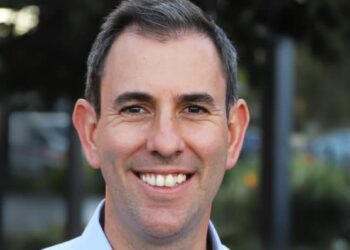Speaking at the Industry Super Australia event, Mr Jones said the government is focused on how it is going to ensure retirement savings work to generate retirement income and to do that it’s looking at “the best levers that we can pull down on in our culture, where personal liberty reigns supreme”.
Mr Jones said the preference of the government is to allow individuals to make their own decisions without the government telling them what to do inferring that financial advice should be more, be more available than it is at the moment.
“That said, I think there is also a role for nudges,” he said.
He gave an example of a superannuant who had reached the age of 65 and the options that may be available to them in accessing their superannuation, the role of advisers in letting that person know of what they can and cannot do, as well as what may be most beneficial.
“Here’s the upside, here’s the downside of it. That’s what I mean by nudges. Here’s the tax benefits of it,” he said.
“That’s the direction we are looking at. But what we know is the current settings aren’t working from an optimum perspective for individuals quite regularly.
“I’ve had people in the industry tell me that I should cite examples of how people arrive at the graveyard with more money than they had at retirement in their superannuation.
“Now, that might mean that they had a whole bunch of other sources of income available to them. But it also might mean that they lived less well than they could have or needed to.
“And it also has issues for other areas of government policy as well. Is that something that deserves a bit more research?”
Mr Jones said some figures suggest around about 30 per cent of savings remained intact “at the point of arriving at the graveyard”.
“A lot of people will squirrel money away because they’re concerned about aged care, or they’re concerned about a health procedure or I don’t want to be a burden to people.”
“There’s a bunch of good reasons, but there are probably some other reasons there as well.”
He said some people are missing out on Low Income Super Tax Offset and the government is also hoping to look at the balance of tax concessions in the system.
“We’ve got a whole bunch of things that we’ve got to consider and priorities that have got to be allocated.”
“And we look at tax concessions, tax expenditures in the direct way that we look at funds that we directly grant there, from a budget perspective, have exactly the same impact.
“We have no current plans in that area. But I don’t think anyone can defy the fact that the way that our settings, our tax settings in superannuation are at the moment, the higher the income, by definition, get higher amounts of savings assistance through tax concessions, there’s no doubt about it. That’s the settings of a system.
“But it’s also worth remembering the fact that superannuation is not the only thing that we are doing for retirement incomes that sits alongside as our draft objective.
“We need to enshrine the objectives [of super] in legislation because we’ve had a whole bunch of kooky ideas that have been recycled through public debate.
“I’ve seen the same debates recycled – let’s use super for housing, wouldn’t it be better if we paid down a HECS debt than put money into super? Shouldn’t people be able to access it for this health care need or this crisis? And what lies at the heart of all of them is a failure in some other area of public policy.”



I hope Mr Jones’ full speech made more sense than the grabs reproduced in this article. Based on those, it sounds like a completely random hotch-potch of partly constructed thought bubbles that meant nothing.
Why say anything at all?
The issue that some people have money left in their superannuation account needs to be explained. It is not an issue at all. The reality is that half the population will die before they reach the average age of death for their gender and age. So it is very likely that they will have money left in their superannuation accounts. And no one wants to run our of money. In my opinion it would be sensible to budget for a period of retirement that is not based on your ‘average’ life expectancy but one based on the 90th percentile – that is 10% of the population will reach this age before death. Then there would be an argument that 90% of superannuants still have money in their accounts when they die. But that is clearly the prudent thing to do. To suggest that we should budget to die at the average life expectancy implies that it will then be ok for the member and the government to have half the superannuants transition to full pensions before they die. This factor needs better explaining.